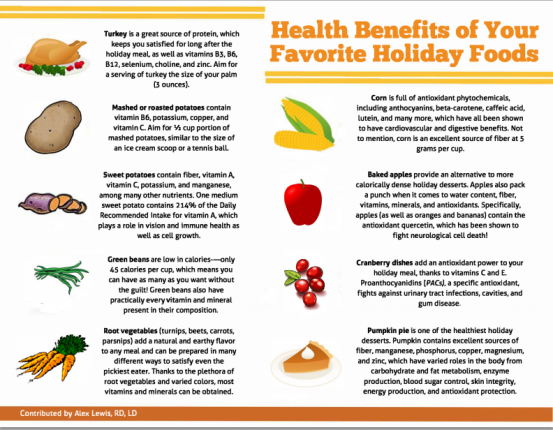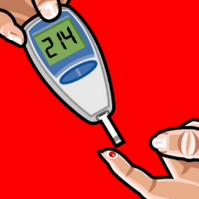Source:
Nutrition411.com
Tips for After Meal Highs
November is American Diabetes Month! Each week this month we will be blogging about topics related to diabetes.
Did you miss the past two posts?
Click here to read about the relationship between sleep and diabetes.
Click here to read about some basics of diabetes and the link between gastroparesis & diabetes.
This week we are discussing high blood sugar readings that occur after meals. According to the American Diabetes Association, a general goal for blood glucose levels one to two hours after a meal is under 180mg/dl. The following tips can help you reach this goal:
1. Count Calories
Monitor your calorie and carbohydrate intake for about a week. This will help you determine if you are eating more than you had previously thought and bring awareness to consuming correct portion sizes.
2. Eat high-fiber foods
High fiber foods such as beans, whole grains, and some vegetables can help blunt blood sugar increases and maintain a healthy weight.
3. Take enough insulin
Discuss with your provider to ensure that your insulin dose is adequate, based on the number of carbohydrate grams you are consuming. Also ask your provider about calculating a correction dose when that may be necessary.
4. Take a 30-minute walk after eating
Exercising after a meal can help people with both type 1 and type 2 diabetes lower their blood glucose after a meal.
Source:
(2012, June) Monitoring Food Science. Diabetes Forecast. 28-31.
The Link Between Sleep & Diabetes
According to the National Sleep Foundation, adults should clock in 7 to 9 hours of sleep per night. The average American adult sleeps 6.5 hours per night.
Why is sleep so important?
- Physical rest
- Mental rest
- Emotional rest
- Concentration
- Information retention
Sleep duration, quality and timing of the sleep may affect hormone production, including insulin. Lack of proper sleep can lead to decreased glucose tolerance, making adequate sleep especially important for individuals with diabetes. Research has also found that that both inadequate (less than 5 and 6 hours) and excessive sleep (more than 9 hours) may increase diabetes risk. Therefore, sleep is essential in both the treatment and prevention of diabetes.
If you’re having trouble getting 7 to 9 hours of sleep at night, read through the following factors that may be interfering with your sleep and see if any may relate to you:
- Caffeine
It can take up to 6 to 8 hours for the effects of caffeine to ware off.
- Nicotine
Nicotine is a stimulant that causes lighter sleep patters
- Alcohol
Despite alcohols sedative effects, it can interfere with deep sleep that is essential for a good night’s rest.
- Psychological disorders
Depression may disrupt sleep or cause insomnia.
- Nighttime exercise
While day time exercise may improve sleep, nighttime exercise can do the opposite.
- Large meals at night
Large meals can cause heart burn.
- Chronic pain
Discomfort from fibromyalgia and arthritis can interfere with sleep.
- Medications
Some pain relievers contain caffeine; allergy and steroid medication can interfere with sleep; and beta blockers make it difficult to fall asleep and cause frequent nighttime awakenings.
- Environment
Noise, lighting, and uncomfortable temperatures can disrupt proper sleep.
Sources:
The Link Between Sleep and Weight Gain, Todays Dietitian (2012).
- « Previous Page
- 1
- …
- 11
- 12
- 13
- 14
- 15
- …
- 19
- Next Page »



